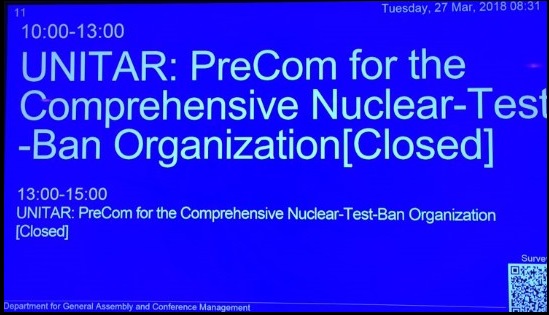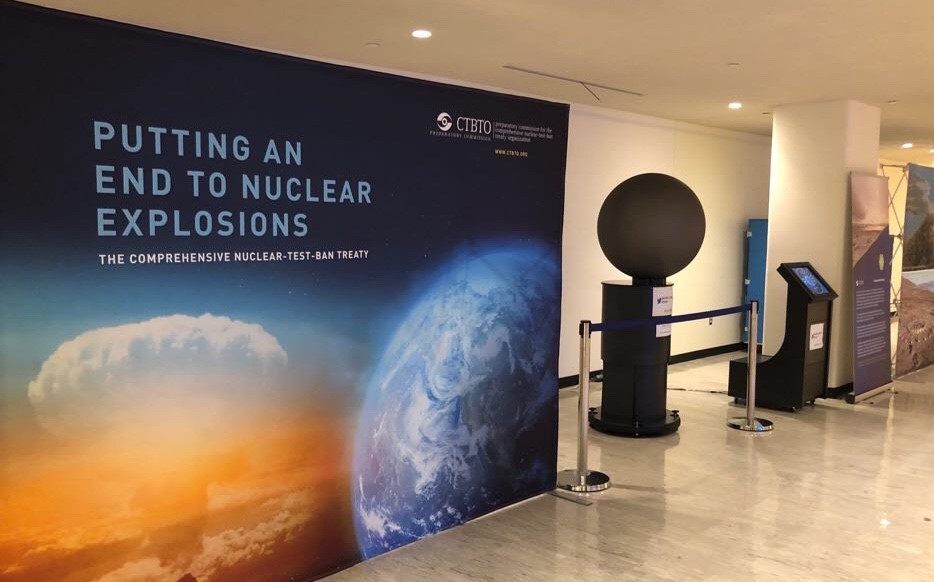Event on the Theme “Preparatory Commission for the Comprehensive Nuclear-Test-Ban Treaty Organization”
 The United Nations Institute for Training and Research (UNITAR) and the Preparatory Commission for the Comprehensive Nuclear-Test-Ban Treaty Organization (CTBTO) co-organized, on 27 March 2018, a very successful event on the theme “Preparatory Commission for the Comprehensive Nuclear-Test-Ban Treaty Organization”, attended by over 80 people.
The United Nations Institute for Training and Research (UNITAR) and the Preparatory Commission for the Comprehensive Nuclear-Test-Ban Treaty Organization (CTBTO) co-organized, on 27 March 2018, a very successful event on the theme “Preparatory Commission for the Comprehensive Nuclear-Test-Ban Treaty Organization”, attended by over 80 people.
Delegates were able to learn about the comprehensive verification regime used by the Preparatory Commission for the CTBTO to make sure that no nuclear explosion goes undetected. During the PowerPoint presentation, the different seismic, hydrophone, infrasound and radionuclide stations that make up the International Monitoring System (IMS) were shown on a map. It was indicated that the International Data Centre at the CTBTO’s headquarters in Vienna receives its data from the global monitoring stations and that all CTBTO Member States receive the data in both raw and analysed form.
Mention was also made of the fact that, contrary to popular belief, the stations that are very far from the location of the nuclear test can still detect it. In the interactive Q&A session, one of the participants asked why, in one of the PowerPoint slides, a few stations failed to detect a nuclear explosion, while all the rest succeeded in doing so. He was informed that this is due to the lack of uniformity in the propagation of the waves and to the presence of some shadow zones, but that the system is redundant and resilient enough to compensate.
As for on-site inspections, they are authorized to proceed if they have been approved by at least 30 of the States that  make up the 51 State members of the organization's executive body, the Executive Council. They can only be requested by a Member State once the CTBT has entered into force. The Treaty provisions for the conduct of such inspections reflect the intention to maintain the balance between an effective inspection and the protection of the Inspected State Party’s national security interests.
make up the 51 State members of the organization's executive body, the Executive Council. They can only be requested by a Member State once the CTBT has entered into force. The Treaty provisions for the conduct of such inspections reflect the intention to maintain the balance between an effective inspection and the protection of the Inspected State Party’s national security interests.
The event, sponsored by the Permanent Mission of Italy, was organized to motivate the Member States to sign the Treaty to make it a fully binding operational instrument and received a lot of positive feedback from delegates and other participants, both in person and online.

